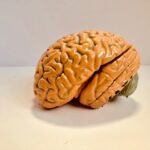
Attention Deficit Hyperactivity Disorder (ADHD) is a neurodevelopmental disorder that affects millions of people worldwide.
One of the lesser-known symptoms of ADHD is the “freeze” response, which can be frustrating and debilitating for those who experience it.
In this article, we will explore what ADHD freeze is, why it happens, and strategies to overcome it.
What is ADHD Freeze?
ADHD freeze refers to a condition where individuals with ADHD encounter a sudden inability to move or take action, despite feeling the impulse to do so.
It resembles the “fight or flight” response seen in stress situations, but instead of reacting by fighting or fleeing, the individual becomes immobilized.
This phenomenon can occur in various scenarios, including during conversations, while performing tasks, or when confronted with decisions.

Why Does ADHD Freeze Happen?
While the exact mechanisms are still being explored, here are some key reasons why it happens:
Executive function
People with ADHD often struggle with executive functions, particularly those related to emotional regulation and task initiation.
These include:
- Working memory: Difficulty holding information in mind to guide their response.
- Time management: Inaccurate perception of time, leading to procrastination and last-minute panic.
- Prioritization: Difficulty prioritizing tasks, leading to feeling overwhelmed and unable to start.
- Emotional regulation: Difficulty managing emotions like anxiety and frustration, which can trigger freeze responses.
Overwhelm and stress trigger
ADHD brains are often more sensitive to external and internal stimuli.
Things like deadlines, unfamiliar situations, sensory overload, or even internal negative thoughts can trigger feelings of overwhelm and stress.
This overload can activate the limbic system, the part of the brain responsible for fight-or-flight responses, leading to a “shutdown” in the form of freeze.
Amygdala overactivity
The amygdala plays a key role in processing emotions and fear.
Studies suggest that individuals with ADHD may have overactive amygdala, making them more prone to feeling overwhelmed and fearful, which can contribute to freeze reactions.
Dopamine dysregulation
Dopamine is a neurotransmitter involved in motivation, reward, and focus.
In ADHD, dopamine levels are often dysregulated, making it difficult to experience the motivation and positive reinforcement needed to initiate and complete tasks.
This lack of motivation can also contribute to feeling stuck and unable to move forward.
Learned behaviors
In some cases, ADHD freeze might be linked to learned behaviors.
If negative consequences (e.g., criticism, punishment) are associated with task completion, individuals may start associating starting tasks with those negative outcomes, leading to avoidance and freeze responses.

What Are The Symptoms of ADHD Freeze?
ADHD freeze, also known as ADHD paralysis or shutdown, manifests in various ways depending on the individual and the trigger.
Here are some common symptoms:
Mental symptoms
- Feeling “stuck” or unable to think clearly.
- Overwhelm and anxiety, often accompanied by racing thoughts.
- Brain fog and difficulty concentrating.
- Feeling emotionally numb or detached.
- Inability to make decisions or take action.
- Negative self-talk and feelings of inadequacy.
Physical symptoms
- Muscle tension and tightness, especially in the chest and shoulders.
- Fatigue and low energy.
- Changes in heart rate and breathing.
- Headaches or stomachaches.
- Feeling hot or cold.
Behavioral symptoms
- Procrastination and avoidance of tasks.
- Difficulty starting or completing tasks, even simple ones.
- Social withdrawal and isolation.
- Irritability and frustration.
- Impulsivity and fidgeting.
- Difficulty communicating or expressing needs.
How to Overcome Freeze
Recognize the freeze
The initial step in overcoming ADHD freeze involves acknowledging when it occurs.
Although recognizing this response might be challenging initially, individuals with ADHD can develop awareness through practice.
Signs of freeze may include a feeling of being stuck or an inability to move.
Identifying these cues empowers individuals to address the freeze more effectively.
Preparing for triggers
Proactive strategies can be immensely helpful.
Creating routines, using checklists, and establishing realistic expectations help individuals with ADHD anticipate and navigate potential triggers.
By preparing in advance, they can mitigate the impact of situations that commonly lead to freeze responses.

Practice mindfulness
Incorporating mindfulness techniques, such as deep breathing and meditation, aids in heightened self-awareness.
By becoming more attuned to thoughts and emotions, individuals with ADHD can reduce anxiety and stress, contributing to a decreased likelihood of experiencing a freeze.
Break tasks into smaller steps
Breaking down tasks into smaller, more manageable steps is an effective way to combat overwhelm.
This approach not only makes tasks more achievable but also diminishes the potential for freeze.
Addressing one step at a time promotes a sense of control and accomplishment.
Create a routine
Establishing a daily routine brings structure and predictability, fostering a sense of organization and control.
For individuals with ADHD, a routine acts as a reliable framework, minimizing the uncertainty that can trigger freezes and promoting a more stable environment.
Positive reinforcement
Celebrating accomplishments, regardless of their size, provides positive reinforcement.
This approach helps build motivation and confidence.
By recognizing and rewarding small achievements, individuals with ADHD create a positive cycle that encourages ongoing progress.
Seeking support
Emphasize the value of seeking support from friends, family, or support groups.
Connecting with others who understand the challenges of ADHD can offer guidance, empathy, and a sense of community.
Sharing experiences and strategies can be beneficial in navigating the journey of overcoming freezes.
Seek professional help
If ADHD freeze significantly impacts daily life, seeking professional help is advisable.
Mental health professionals can provide personalized strategies and support tailored to manage ADHD symptoms, including freeze responses.
Seeking professional guidance ensures a comprehensive approach to address the unique challenges individuals with ADHD may face.

Conclusion
Facing ADHD freeze, a challenging symptom of ADHD, is possible with heightened awareness and consistent practice. Individuals can take control by recognizing freeze signs, embracing mindfulness, dividing tasks into manageable steps, establishing routines, and seeking professional assistance when necessary. Through these strategies, individuals with ADHD can effectively overcome the freeze phenomenon, paving the way for a more fulfilling and empowered life.
FAQs
Yes, ADHD freeze can occur in children with ADHD, although it may present differently than in adults.
ADHD freeze is not as well-known as other symptoms of ADHD, such as hyperactivity and impulsivity. However, it is a real and significant symptom that can impact daily life.
Medication can be helpful in managing ADHD symptoms, including freeze. However, it is important to work with a healthcare provider to determine the best course of treatment.


